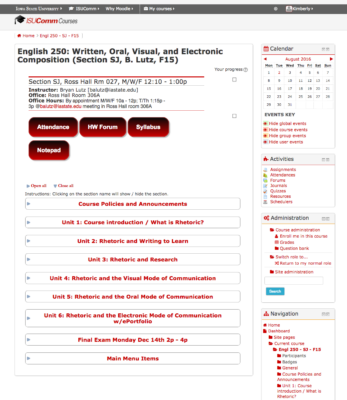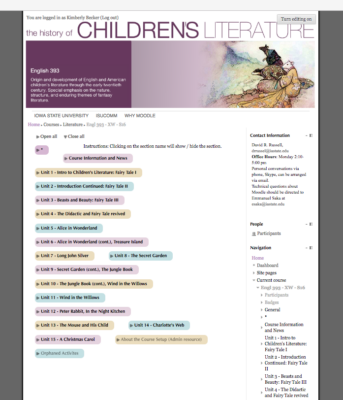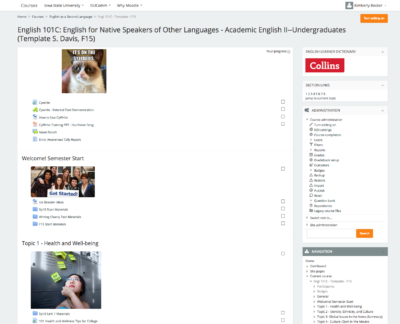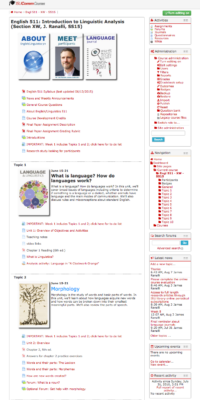Why the English department uses Moodle: A Guide for Instructors and Students
Many people, instructors and students alike, wonder why ISUComm foundation courses (i.e., Engl 150 and 250) utilize Moodle instead of Blackboard. Below is a rationale to help all stakeholders understand the decision.
- CONTEXTUALIZED: Our Moodle is customized to the context of our curriculum. Much of its functionality is a product of dialogue between the Online Learning Team (OLT) and users, as well as consultations with Moodle’s online support community, which creates and modifies the platform with pedagogical needs in mind. Thus, the learning management system (LMS) not only provides a platform for undergraduate foundation courses, it also provides our department’s graduate students who teach the courses and maintain the learning management system valuable skills related to course and LMS management.
- CONTROLLABLE: Having control over the software and its development means the technology is distinctively ISUComm; it does not surrender authority to proprietary systems’ branding or their vision for education. Moreover, it is a platform suited for collecting data for research purposes. We work with the Institutional Review Board (IRB) and maintain forms to obtain students’ consent. There is no need to coordinate with outside sources other than the IRB, so we have control over the student’s data. This control assists us in continuing development of the program and assures us that no one makes a profit from students’ work.
- FLEXIBLE: Moodle can have a steeper learning curve than some proprietary systems, but that is because much of that learning is owed to the degree of control, functionality, and customization it offers teachers. The Moodle platform affords instructors the opportunity to exercise course design skills. Below are some examples of different course sites with various themes, layouts, and buttons:
- OPEN-SOURCE: According to the National Council for Teachers of English, open source platforms offer a number of benefits. Chief among them, “Open-source software development is built within communities of committed users who are dedicated to maintaining and improving the software. Program code is shared and collectively reviewed by multiple parties, and collaboration drives related tasks such as promotion, documentation, usability testing, and support. This process resembles the ways in which knowledge is constantly made, refined, and re-thought in universities.”
The OLT is made up of teachers of ISUComm. We are not only tech consultants, we are consultants on how to effectively incorporate technology in the classroom. Besides the context-specific documentation in the ISUComm Support Site, we offer support by email and office hours in 306 Ross Hall. Come see us!



